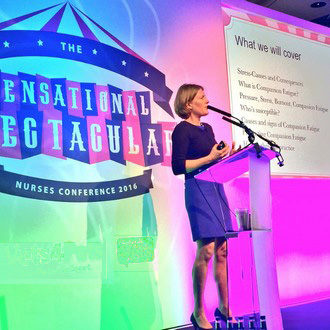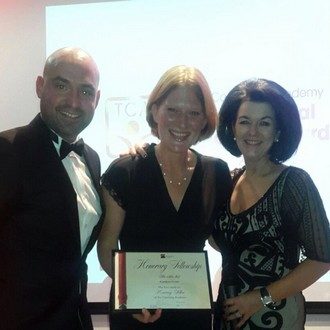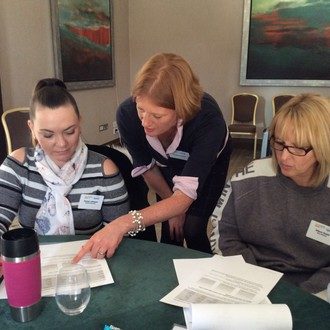I can say with some confidence, that confidence is two-fold:
- That which you have in your own abilities (self-confidence)
- The trust that others have in your abilities and plans
For most professionals, both aspects are important – we need to enjoy and be motivated by our jobs and we must also instil confidence and trust in our clients. Fundamentally, confidence comes from accomplishment, a belief in capabilities (whether they be yours or someone else’s) – confident people recognise risks and act anyway; evaluating current skills, focusing on the outcome and then taking calculated action.
You might not think that you are confident, and others might agree. Equally, you might not think that you are confident, but others would be surprised to hear this.
Confidence is tangible, whereas competence is clear – yet they are both inextricably linked. Confidence comes from practice, practice builds competence, and competence builds confidence – and so it goes on, in a continuous loop:
You can thus build both confidence and competence by harnessing the process:
1. Set an objective
What do you want to get better at? What do you want to change? Where do you want to be more confident? What does being more confident look like? What new skills will you need? What improvements in the skills that you already have are required?
2. Practice
This requires discipline, patience and consistency, and it may feel awkward at first, but keep at it.
3. Ask for feedback
Listen, take it on board and learn from it. Evaluate what you are learning and be honest with yourself – what small changes can you still make to improve further?
4. Competence
Now you are making small, but consistent improvements and moving towards your goal. You are becoming more and more competent.
5. Confidence in your abilities
Success breeds confidence and in time your expectations of success become strong and automatic.
Building confidence
With regular practice, self-confidence is a skill that can be learned and improved. Working through a series of practical steps will help build your confidence, and ultimately develop increased competence:
1. Set goals
A goal is simply a dream with an end date. Goals are well-formed, positive statements of intent, made with absolute commitment and followed through with daily action. Most fulfilled people are goal orientated. They take time to identify what it is they want, and build up a really clear and detailed picture of what achieving the goal will look and feel like. They then take regular action to move towards their goal – remember that goals should always be SMART.
2. Learn from others
A clever technique that can help you build confidence is called ‘mirroring’. Choose a colleague that you feel embodies confidence and visualise how they stand, speak, work with their clients and so on. Imagine yourself saying to this person that you are going to ask their permission to step into their shoes. When they say yes, smile and move into them. As you do, notice how you now see the world through their eyes, their experiences, their skills, feelings, strengths, their confidence. Know that you can step into this state any time you like.
3. Practise
Don’t be hard on yourself – you won’t get it first time, Edison took 3,000 attempts to get the light bulb right! Practice does make perfect, so keep at it and don’t be deterred by initial knock-backs. Keep practising.
4. Behave as if you are more confident than you are
Are you mentally prepared for your clients? They will easily be able to tell if you are not! Look at yourself, either in front of a mirror or on camera. Don’t just focus on what you say but also how you are saying it. How are you standing? What are your facial expressions? What is your body language saying – crossed arms and no eye contact, or open posture and steady gaze? First impressions really do count, so before every client make sure you are prepared.
5. Learn from your mistakes
Embrace the mantra “there are no failures, only feedback”. We all learn from mistakes, so as long as you don’t keep making the same one over again, take the opportunity to review what went wrong and understand what you can do to avoid it happening again.
6. Be kind to yourself
We can’t be great at everything, so apply some context when things don’t go to plan. Ensure that you have something else to focus on outside work, so that your job doesn’t consume your entire life. Think about what your objective was in the first place – perhaps your ‘failure’ isn’t nearly as significant as you first felt it to be.
7. Control your inner voice
Learn to spot the negative voice that can destroy your confidence and refuse to listen. Think positive, celebrate successes and always keep your end goal in mind.
If you would like to take control of your life and career, my online personal development programme MyLifeStrategy can help you to overcome the personal and professional challenges you face on a daily basis and learn practical skills and techniques to make a real difference to you and your life.









